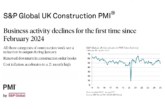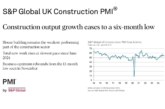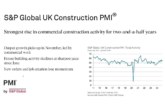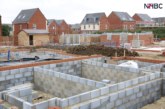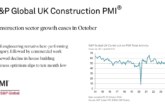
Demand for new homes has reached its lowest level since 2014, according to small to medium-sized (SME) house builders.
The new figures, published in the Federation of Master Builders (FMB) House Builders’ Survey 2020, track the experience of SME house builders in England. The survey found that the planning system was the biggest constraint on SMEs building more homes, with almost half (48%) of respondents citing this issue.
Key findings of the House Builders’ Survey include:
- Buyer demand fell to its lowest levels in six years;
- 48% of respondents said that ‘the planning system’ was restricting their ability to build new homes. Anecdotal evidence suggests builders are typically waiting one year for a decision on a non-controversial planning applications; and
- 46% said they had concerns over a ‘lack of available and viable land’ to build on.
In a worrying development, access to finance has emerged as a growing concern for SMEs, with 41% saying that this is an issue for their company. Recent improvements in lending conditions over the past two years have been reversed, and the issue of loan refusal has seen the biggest jump in respondents citing this as a cause for concern.
When asked to look ahead over the next three years, 37% of SMEs are concerned about the impact of restricted mortgage availability and what this will mean for prospective house hunters.
Against this background, the FMB’s House Builders’ Survey sets out three key priorities for SME house builders over the year ahead:
- Boost resources for local authority planning departments – to help builders bring forward new sites, and lay the foundations for the Government’s ambitious reforms to the planning system currently under consultation;
- Improve flexibility in the Government’s Home Building Fund – the survey found no SME house builders currently use this dedicated funding pot for small site development. This will help unlock additional new homes and deliver on the Government’s target of building 300,000 new homes a year;
- Extend the Stamp Duty Land Tax Holiday when it ends in March 2021 – to help sustain increased levels of buyer demand over the longer-term. This will maintain activity levels in the sector and help with job retention.
Brian Berry, Chief Executive of the FMB, said: “SME house builders are facing the dual challenge of weakening demand, and increasing constraints on their output. Taken in the context of Brexit uncertainty and the ongoing economic impact of the coronavirus, these conditions are hampering recovery in the housing market.”
Berry concluded: “The Government needs to prioritise supporting recovery in the SME house building sector. SME builders operate in every community in England and support the Government’s levelling-up agenda. They build high-quality, sustainable and beautiful homes in places where people want to live. Local builders also create local employment and training opportunities, as SMEs train almost three-quarters (71%) of the industry’s apprentices. The FMB is keen to work with the Government and the industry to reverse the decline in the SME house building sector and create a more diversified and resilient industry.”
Since this statement was released, the FMB has further commented, ‘the Government must release bottlenecks in housing delivery with more resources for local authority planning departments and mechanisms to hold them to account if they are slow to respond to applications.’ This comes as recent construction ONS data reveals that new work in the private new housing sector declined by 17% in the three months to July 2020 – the sharpest fall of any sector.
Brian Berry, Chief Executive of the Federation of Master Builders, said: “Over the past year, the planning system has represented the biggest headache for small to medium-sized (SME) house builders. In a survey published by the FMB, almost half (48%) of SMEs say that the delays and costs they incur through navigating the system are limiting their capacity to build more homes. With anecdotal evidence suggesting builders are typically waiting one year for a decision on their application, it’s no surprise that new work in the private housing sector has dropped significantly in recent months.”
Berry concluded: “If the Government is serious about meeting its target of building 300,000 new homes a year, it needs to bring in short-term measures that will stimulate supply. The Stamp Duty Land Tax Holiday has proved to be highly successful, but without a flow of new homes to meet demand, we only serve to compound the housing crisis and hike prices.”

